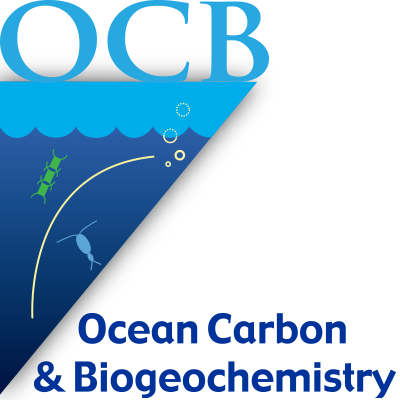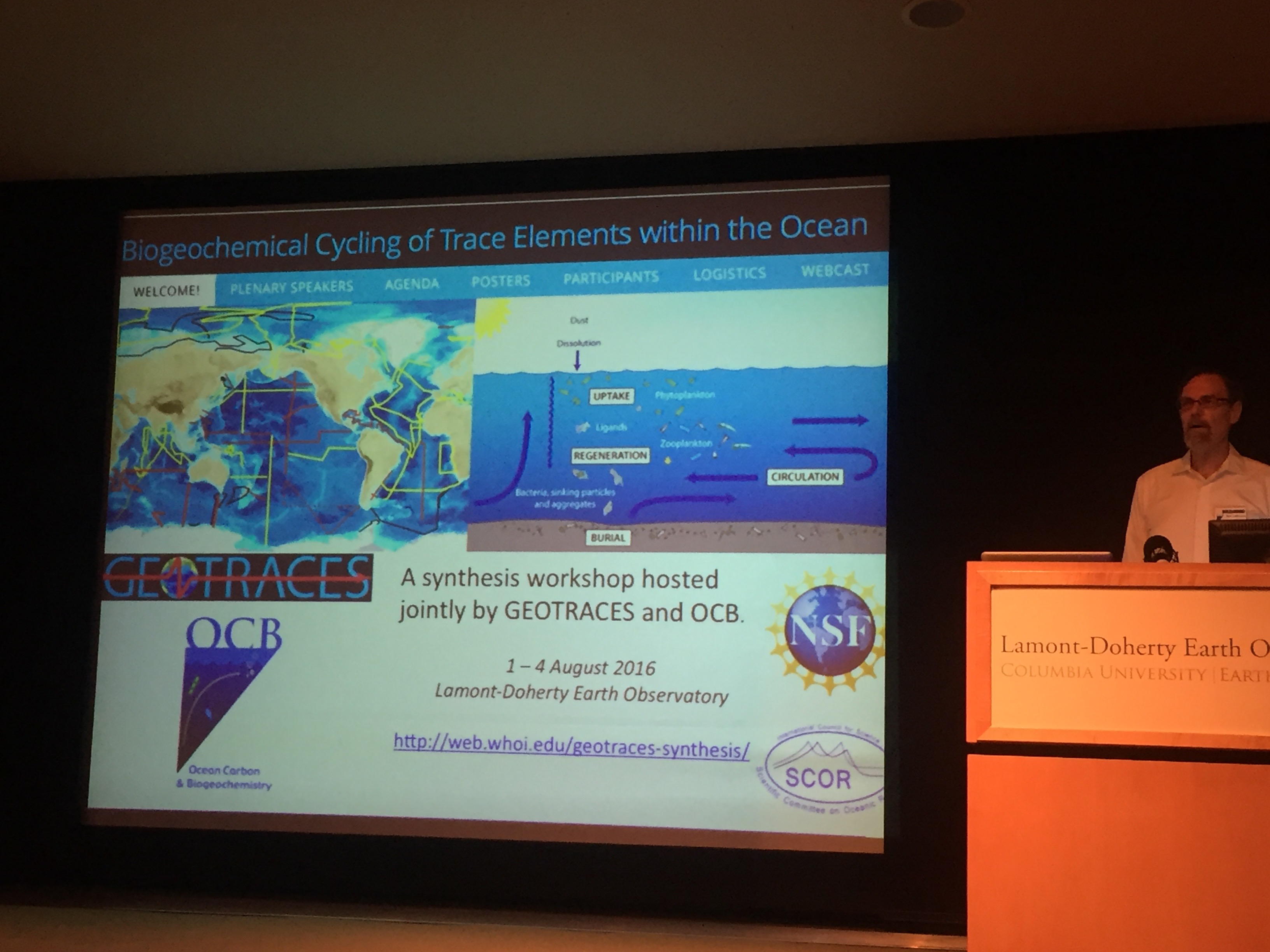Over 100 scientists from 12 nations met at the Lamont-Doherty Earth Observatory in Palisades New York, USA, on 1 – 4 August 2016 for a synthesis workshop on the Biogeochemical Cycling of Trace Elements within the Ocean. The workshop focused on setting priorities for utilizing GEOTRACES trace element and isotope (TEI) data sets to advance scientific objectives at the interface of marine biogeochemistry and ecology, and was jointly sponsored by the GEOTRACES and OCB Programs.
Workshop activities were organized around three scientific themes:
1. Biological uptake and trace element bioavailability,
2. Abiotic cycling and scavenging, including particulate and dissolved speciation, and
3. Export, recycling and regeneration
Following a series of plenary talks designed to stimulate discussion on these topics, participants spent the remainder of the workshop in smaller group discussions to identify knowledge gaps and develop ideas for synthesis activities and products that combine GEOTRACES TEI data with other biogeochemical and biological data sets.
Tentative activities and products include:
• estimating bioavailability of iron (Fe)
• testing hypothesis for Fe and light co-limitation in the deep chlorophyll maxima;
• exploring Redfieldian concepts using GEOTRACES data and ocean models;
• calculating community trace metal demand vs. supply;
• developing a synthesis paper on existing methods and current state of knowledge on ligand composition and cycling;
• comparing radionuclide-based tracer methods for estimating downward flux of carbon, nutrients and trace metals;
• combining TEI distributions with AOU and preformed TEI concentrations to differentiate biotic (e.g., respiration) and abiotic (e.g., scavenging, physical transport) removal processes;
• estimating elemental scavenging using partition coefficients (Kd);
• combining particulate TEI and beam transmission data to develop algorithms for particle distributions that affect TEI scavenging; and
• developing synthesis paper on TEIs in nepheloid layers.
To learn more about and/or contribute to these activities, please contact Heather Benway (OCB) or Bob Anderson (LDEO). For more information, visit the workshop website or view the plenary presentations.






